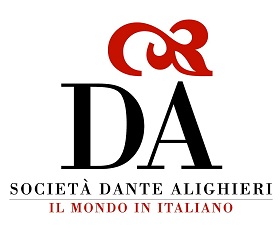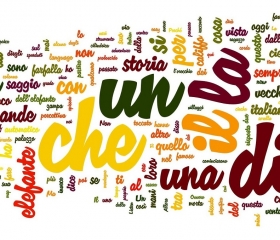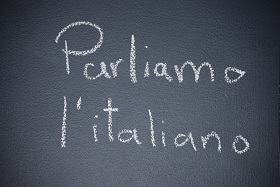Dolce potere (the Italian equivalent for soft power) offers foreigners pleasant associations with “dolce vita.” Language, by definition, is an effective tool of dolce potere. Language is a channel for the transfer of information, it is a way of winning confidence, and a vital instrument of business and cultural communication. There is a lively debate in Italy on this subject. While some Italian universities are planning to switch to English, Italian happens to be one of the five most studied languages. According to the influential newspaper Corriere della Sera, the point is not how many people consider this language their mother tongue, but its attractiveness and the number of people wishing to learn it. Surveys at Oxford University show that there, among undergraduates, the Italian language has become the most popular: undergraduates confessed that speaking, reading, and singing in Italian gives them great pleasure. Traditionally, the perception of the Italian language has been closely related to the beauty of the country, but today it can also help young people find their place in the world of Italian business, design, fashion, and the art of cookery.
Romans and Neapolitans: Two Related Peoples Divided Only by Language
Italian, as we know it, became the “lingua franca” in the Apennines only recently. For centuries, the language of Dante, Petrarch and Boccaccio remained known only to a small group of educated people. The rest spoke dialects that were so dissimilar that the saying Romans and Neapolitans are two close peoples, divided only by language was quite accurate. In the Middle Ages, the Venetian dialect was lingua franca in the Eastern Mediterranean. The first Constitution of Corsica (1755), permeated with ideas of Enlightenment, was written in Italian. Only in the mid 19th century, when separate states were united into a single kingdom, did children begin to study the language in elementary school, while speaking their dialect at home. And in the second half of the 20th century, nearly all the country's citizens began to speak Italian thanks to the radio, TV, cinema, and the army.
Today there are about 70 million Italian speakers in the world. During the colonial period, Italian was the official language in Libya and Somalia, and up to the mid-1930s – in Malta. Italian is the official state language not only in Italy but also in the Republic of San Marino, Switzerland (along with German, French and Rhaeto-Romanic), and in the Vatican City State. Italian is one of the 23 official languages of the European Union; documents of the Sovereign Order of Malta are published in Italian, which is also the second official language in some parts of Croatia and Slovenia. Italian is the most popular language in Albania, while in Macedonia and Montenegro it is second only to English. Two-thirds of the Maltese population and every fifth Monégasque speak Italian. In some regions of Argentina and Venezuela it is second only to Spanish. In the states of New York and New Jersey, as well as in New England, the descendants of Italian immigrants speak the language, as do Italians who emigrated or came to work in Switzerland, France, Germany and other European countries speak this language.
Within the EU, Italian is second only to German in terms of the number of native speakers. Sixty four percent of Maltese, 12 percent of Croats and Slovenes, seven percent of the French believe Italian to be most useful language for their development and career prospects. Recently, various different Italian cities set up courses for immigrants, where they study the Italian language, history and basics of the political system to help them integrate successfully into Italian society.
Dolce Potere and Public Diplomacy in Italy
Italy has a lot to popularize and share with the world. Being the treasury of European civilization, it has given humanity great literature, masterpieces of art and music, examples of perfect architecture. Common words such as bel canto, piano, aria, sonata, opera all boast Italian origin, the modern system of musical notation first appeared in Tuscany. The Renaissance thinkers were at the origin of a new political science, and the contemporary model of diplomacy was first formed in the states of the Apennine Peninsula. Economists and financial experts widely use the now-internationalized terms debit and credit, currency, offer. Everyone is familiar with Italy’s famous foods and masterpieces of Italian cinema. Skilled Italian businessmen, engineers, architects and designers work in numerous different countries the world over.
In 1893, the King of Italy established the Dante Alighieri Society by a special decree. Its Statute reads: Our aim is to safeguard and promote the Italian language and culture in the world, holding up wherever possible the Italian sentiment, reviving the spiritual ties of compatriots abroad with the mother country and instilling in foreigners the sentiment of love for Italy and devotion to Italian civilization.
Being an important part of Italian public diplomacy, the policy of italophonia is a strategy that aims to create an international Italian-speaking community and build bridges between Italy and those beyond its borders who speak or want to speak Italian. Currently, the Dante Alighieri Society has over 500 branches abroad, and a hundred in Italy. The Society organizes Italian language courses and issues certificates evidencing a certain command of the language in accordance with the Council of Europe requirements. It hosts exhibitions and concerts, sporting events, film festivals, touring theater companies, literary evenings, and fashion shows.
To promote italianità (something peculiar to Italians), Radio and Television Italophonia Community was established. It was founded by the Italian media concern RAI, Vatican Radio (which broadcasts to the world), and TV and radio broadcasting companies of Switzerland, San Marino and Capo d'Istria.
The Italian Ministry of Foreign Affairs spares no effort in creating a worthy image of the country abroad. Noted public figures and diplomats head 93ы Cultural Institutes operating under the auspices of Italian embassies. The website of the Italian Cultural Institute in Russia emphasizes that it is a place of meeting and dialogue for intellectuals, art and cultural workers, ordinary people ... who seek to establish and maintain communication with Italy. Fifty thousand students attend language courses at these Institutes worldwide. Contests are held for those who want to study or train in Italy. Cultural Institutes are also designed to facilitate integration of the local Italian community and expand ties between Italians and their mother country.
Italians selected by the Farnesina (Italian Foreign Ministry) teach the language in 238 universities in 88 countries. Financial assistance is provided to local Italian teachers. The Ministry supports over 300 foreign schools and kindergartens, where Italian is taught along with the native language.
The Farnesina prize is awarded to foreign publishers and translators for their contribution to the promotion of Italian literature, and the Ministry provides financial support for the translation and publication of important works. Every October, under the patronage of the President of the Republic, the Farnesina and academic institutions hold a Week of the Italian Language Abroad, during which embassies, consulates and cultural institutions organize events that promote better understanding of Italian traditions, attitudes, and tastes, and that also serve to acquaint communities with Italian business successes.
Recently, the Italian diplomatic office in conjunction with the Ministry of Culture and Television created an online education portal. This offers people a chance to better understand Italy’s heritage and cultural achievements, the work of Italian experts, archaeologists, architects, art historians and restorers. It covers the latest Italian achievements in various fields such as science, medicine, religion, and sport.
Italy ... with its magnificent language, full of luster and concetti (meaning) (Alexander Pushkin)
For over 500 years, Italy and the Italian language have formed an integral part of the Russian cultural realm. Composers Dmitry Bortniansky and Maxim Berezovsky studied the laws of harmony at the famous Bologna Conservatory. Pyotr Tchaikovsky composed his Queen of Spades in Florence, Italian melodies inspired Mikhail Glinka and Sergey Prokofiev. In Rome, Nikolai Gogol wrote Dead Souls. Fyodor Dostoevsky created the novel The Idiot in Florence. The beauty of Italian cities fascinated Leo Tolstoy, Ivan Turgenev, and Anton Chekhov. Tales of Italy by Maxim Gorky came into being on Capri. Anna Akhmatova, Nikolai Gumilev, Marina Tsvetaeva, Alexander Blok, Osip Mandelstam and Boris Pasternak all viewed travelling to Italy as both obligatory and desirable. Having left the Soviet Union, poet Joseph Brodsky, directors Andrei Tarkovsky and Yuri Lyubimov both worked in Italy. A Journey to Italy is bound to be a decisive spiritual experience - wrote art critic Pavel Muratov in the epilogue to his famous book Images of Italy [1].
Today, Italy is a major partner of Russia, ranking second in Europe and fifth in the world by bilateral trade volume. The cultural ties are also gaining momentum. The year 2011, when Russia and Italy reciprocally promoted their language and culture, proved quite a success: over 500 events were held, including exhibitions, concerts by the finest orchestras and art groups, theatrical exchanges, book fairs, and themed round tables.
Intensive cultural exchange, tourism, and dynamic business activity carried out by Italians in Russia have provoked unprecedented demand for the Italian language. Thousands of Russians attend courses at the Italian Cultural Institute in Moscow and St. Petersburg, as well as the courses held by Dante Alighieri Society.
The Farnesina helped many Russian universities get teachers of Italian into their faculties. More and more Russian students are choosing to study the language in Italy. Six dozen schools have adopted the joint Italian-Russian Program of Spreading Italian in Russia. Of these, about thirty are based in Moscow and St. Petersburg, the rest are in Yekaterinburg, Nizhniy Novgorod, Samara, Rostov-on-Don, Kazan, Krasnodar, Novosibirsk, Irkutsk, Vladivostok, and elsewhere. Russian schools have started to hold joint online training programs with their counterparts in Italy. The Russian Orthodox Church has also noted the importance of Italian as a tool in the dialogue with the Roman Catholic Church.
Great by Native Eloquence... (Giovanni Boccaccio)
One has to fight to assert the right of the Italian language to be the language of international relations. In 2008, Italy, one of the six founding countries of the European Union, protested against the publication of job offers in the EU in just the three working languages – English, French and German. Italian media were quick to recall that European multilingualism was protected by statutory provisions, and that this discriminatory approach gave native speakers of those three languages an unfair competitive advantage. They sarcastically inquired, how ordinary people, hardly fluent in foreign languages, would be able to understand the terms. This protest was heard, and the announcements were published in Italian. Since 2011, competitive exams have been held in all 23 official EU languages. However, since the economic crisis forced Mario Monti’s government to cut Italy’s contributions to the EU, the translation of documents into Italian may cease in almost half the working groups. Italians are so hurt by the preference given to French and German that, accepting the arguments about the high cost of translation services, they offered to confine translation just to English. Nevertheless, the Italian Parliament continues to adopt resolutions calling for an urgent strategy to protect and promote the Italian language in the EU and other international organizations to be developed. The Italian language is so deep-rooted in the world of business and cross-cultural communication, that the strategy stands a good chance of success.
* * *
It is increasingly clear that globalization does not only blur national distinctions and act as a unifying force. Soft power suggests the comprehensive development of public diplomacy, vigorous promotion of the language and culture of the nation. Italy provides a highly instructive example of this diplomacy. Famous Italian writer and playwright Luigi Pirandello once noted that to learn Italian one has to spend a year in a monastery, a year with a beautiful woman and a year in the best wine cellar in Tuscany. Fortunately, or perhaps unfortunately, in these times of global communication, there is no need to follow this advice. Italians actively shape an international Italian-speaking community, and create, as they put it, a transcontinental country system to promote the attractiveness of Italy and the made in Italy brand. And no efforts are spared in their work to attain this goal.
1. P.P. Muratov Images of Italy. Moscow, Art-Rodnik Publishers, 2008








